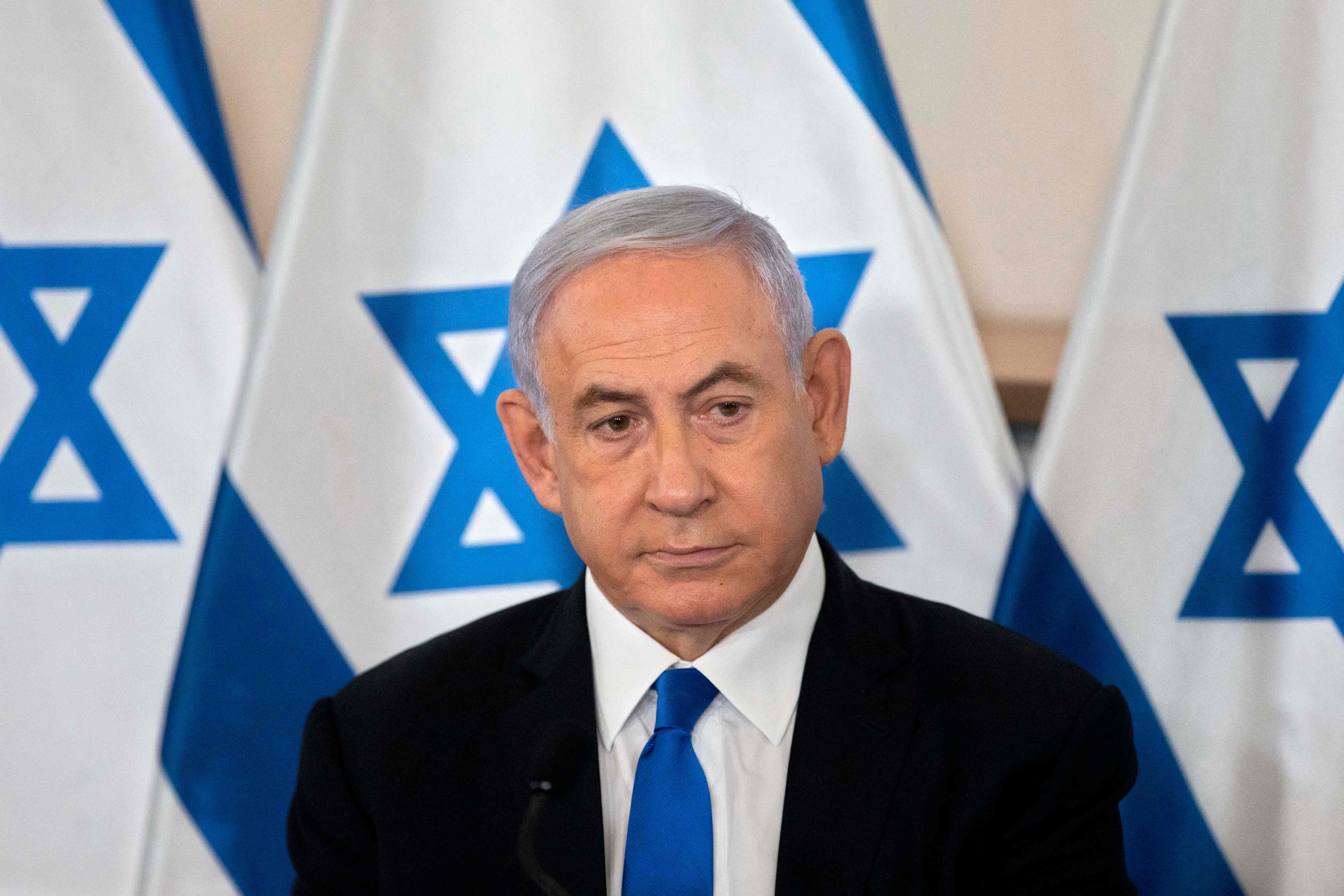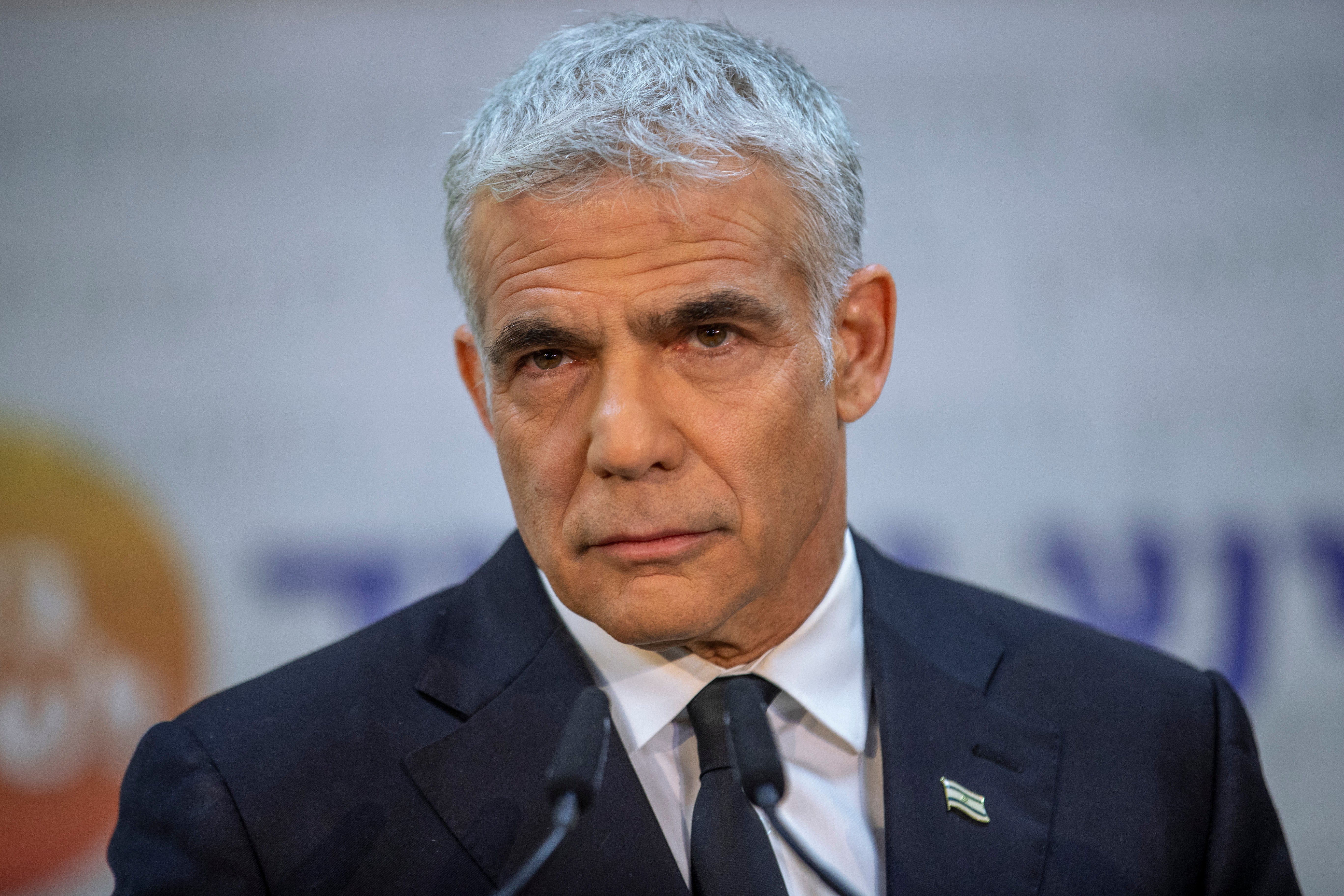Benjamin Netanyahu: Is this the end for ‘King Bibi’?
Israeli prime minister faces landmark challenge to dominance from eight-party coalition after 12 years in power but won’t give up without a fight

Your support helps us to tell the story
From reproductive rights to climate change to Big Tech, The Independent is on the ground when the story is developing. Whether it's investigating the financials of Elon Musk's pro-Trump PAC or producing our latest documentary, 'The A Word', which shines a light on the American women fighting for reproductive rights, we know how important it is to parse out the facts from the messaging.
At such a critical moment in US history, we need reporters on the ground. Your donation allows us to keep sending journalists to speak to both sides of the story.
The Independent is trusted by Americans across the entire political spectrum. And unlike many other quality news outlets, we choose not to lock Americans out of our reporting and analysis with paywalls. We believe quality journalism should be available to everyone, paid for by those who can afford it.
Your support makes all the difference.Israel’s prime minister Benjamin Netanyahu finds himself in a fight for his political life as a new opposition coalition threatens to bring an end to his record-breaking 12-year stint in power.
An eleventh-hour power-sharing proposal put forward by Mr Netanyahu’s political rivals on Wednesday prevented the country from being plunged into a fifth election in just over two years and could now see the current leader toppled if it is voted through the Knesset, Israel’s 120-member parliament, early next week.
Yair Lapid, leader of the new centrist opposition party Yesh Atid, informed president Reuven Rivlin that he had come to an agreement with former Netanyahu aide Naftali Bennett’s right-wing Yamin Party to form a new government that could command a majority in the Knesset.
The coalition consists of eight parties in total from across the political spectrum, none of whom have much in common beyond the shared goal of ousting Mr Netanyahu, the grouping bringing together hard-liners previously allied with the current prime minister as well as centre-left parties and even the United Arab List, who would become the first Islamist party ever to be part of a governing coalition in Israel should the plan be approved.
But the collective’s majority is razor-thin, consisting of just 61 votes in parliament, and, on Thursday, it failed in its bid to replace speaker Yariv Levin, an ally of Mr Netanyahu, as part of a push to speed up the vote on its possible ascent to power. The effort was thwarted by Nir Orbach, a Yamina lawmaker, who refused to sign on and therein underscored the fragility of the new alliance.
Mr Levin could now potentially exploit his position to delay the vote and give the embattled incumbent additional time to sabotage his opponents’ unity project.
If the coalition is ultimately voted in, Mr Bennett would share a rotating prime ministership with Mr Lapid, assuming the role first before the latter succeeds him in two years’ time.
“This government will work for all the citizens of Israel, those that voted for it and those that didn’t,” Mr Lapid said in a statement on Twitter. “It will do everything to unite Israeli society.”
Mr Netanyahu wasted little time in responding to that challenge, writing on the same platform on Thursday: “All members of Knesset who were elected with right-wing votes need to oppose this dangerous leftist government.”
Israel has hardly been short of political drama of late, having already staged four inconclusive elections in two years followed by an 11-day war in the Gaza Strip last month that was accompanied by violence between Jews and Arabs in cities across the country.
It is also emerging from a coronavirus crisis that killed more than 6,400 people, caused deep economic damage and exposed tensions between the secular majority and the ultra-Orthodox minority.
Yet the current political debate remains focused squarely on Mr Netanyahu, who has had to campaign under the shadow of corruption allegations – and whether he should stay or go.
But the man nicknamed “King Bibi” and “Mr Israel”, who has dominated Israeli politics for three decades, is not done yet.
He and his supporters have spent recent days ramping up a pressure campaign against his hawkish former allies like Mr Bennett and Yamina deputy Ayelet Shaked, accusing them of betraying their values and encouraging protests outside the homes of Mr Shaked and Mr Orbach, urging them to abandon the project, according to the Associated Press.
“He will spend the next 12 days trying to work out how to undermine and sabotage this government,” Century Foundation analyst Dahlia Scheindlin told The Independent.

“There will be a lot of pressure, especially on right-wingers, especially for religious right-wingers,” agreed Gideon Rahat, a political science professor at Hebrew University.
“They will go to the synagogue and people will pressure them. It will be a nightmare for some of them.”
Mr Netanyahu has enjoyed significant political victories in recent years after cosying up to former US president Donald Trump, who relocated the American embassy from Tel Aviv to Jerusalem, therein acknowledging it as the nation’s capital; recognised the Golan Heights as Israeli territory (most nations have considered it occupied land since 1967) and orchestrated diplomatic accords with four Arab nations.
But now Mr Trump is gone and King Bibi, haunted by corruption charges and already fending off a rivalry with his own defence minister Benny Gantz, now faces a landmark challenge to his grip on power.
Could his crown, finally, be about to slip?
Additional reporting by agencies



Join our commenting forum
Join thought-provoking conversations, follow other Independent readers and see their replies
Comments